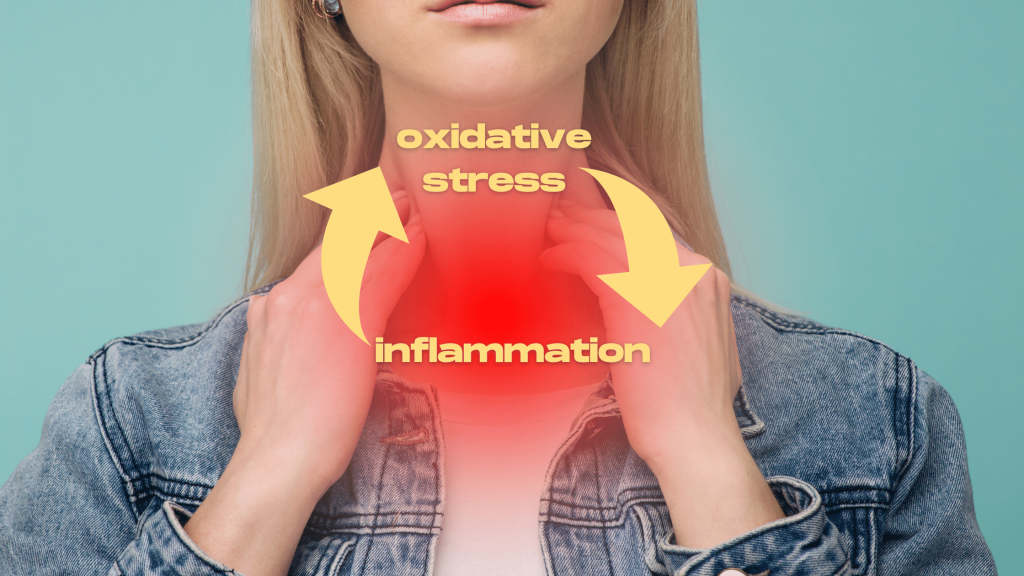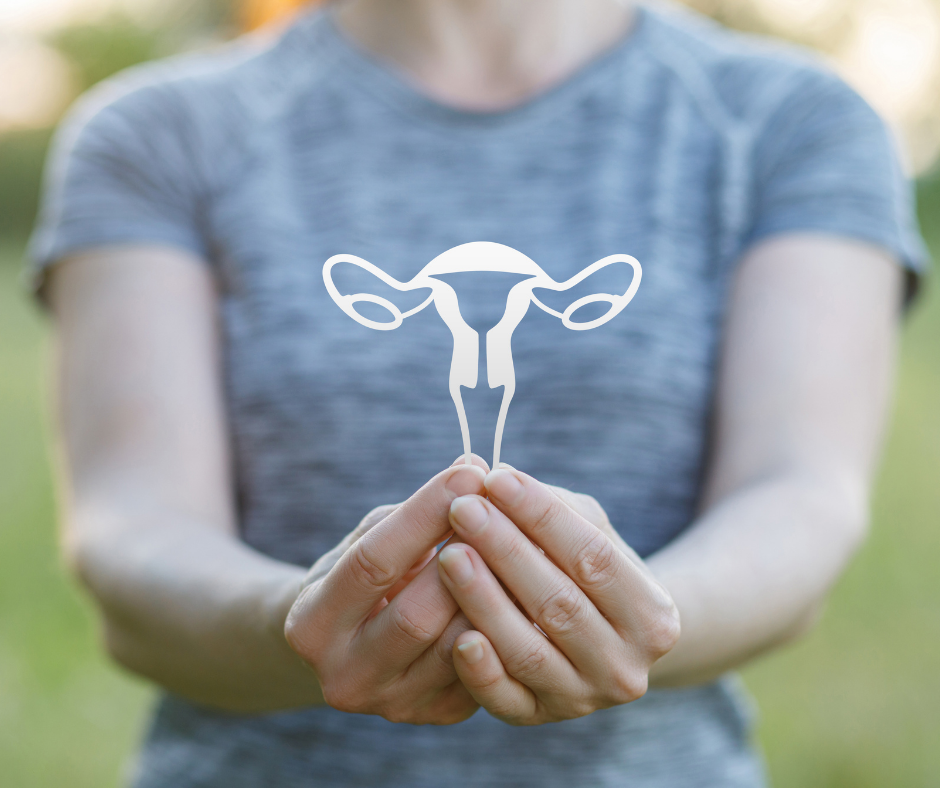The German Society for Nutrition recommends five servings of fruit and vegetables per day. One serving corresponds to roughly the size of a fist. Cardiologists in England go even further, naming ten servings as an optimum amount. More and more, it is apparent: patients with autoimmune thyroid diseases such as Grave’s disease or Hashimoto also benefit significantly from such a diet.
Hashimoto is the most common autoimmune disease. It is usually triggerd by a combination of factors: Affected persons often have a genetic predisposition. Twin studies show that the influence of our genetics accounts for about 55%. Other factors adding to the predisposition are almost equally important. They consist of external influences that trigger the immune system in such a way that it falsely attacks the body’s own cells. Unfortunately, we cannot prevent all of them, such as certain diseases, but fortunately there are also a number of factors that we have in our own hands.
Diet is one of them.
What do we know about the diet in autoimmune thyroid disease?
We now know, for example, that it is beneficial to maintain a healthy body weight. Too high a body weight increases oxidative stress and this in turn promotes the disease. How this works will be explained below.
A relatively recent study from 2021 also shows that a predominantly plant-based diet is preferable in autoimmune thyroid diseases.
However, it must be said that wheat products, which contain a lot of gluten, should be consumed in small amounts only by patients with autoimmune thyroid diseases. A reason for this recommendation is the observation that a lot of gluten can lead to immunological changes in our intestine, promoting autoimmune events in other parts of the body. For example, it is very often observed that gluten sensitivity, celiac disease and thyroid autoimmunity occur in the same person. Conversely, it has been shown in many studies that the overreactive immune system of patients with autoimmune diseases benefits when the stimulus caused by gluten is eliminated or at least reduced.
Why, you may wonder, is a plant-based diet so beneficial, especially for patients with an autoimmune disease? Well, it is believed that this form of diet for one thing contains fewer ingredients which promote inflammatory processes in the body and in addition to that is particularly rich in valuable antioxidants.

Take-home message
- Make sure you have a healthy body weight
- Predominantly plant-based food
- Little gluten
Autoimmune thyroid disease and oxidative stress
Vegetables and fruit are without a doubt the main sources for valuable antioxidants in our diet. They are the antidote to harmful oxygen radicals in our bodies. Studies in recent years have shown that the latter are more common in autoimmune diseases of the thyroid gland. In a 2015 paper, scientists were able to demonstrate that the more the thyroid gland got out of sync, the more the proportion of harmful reactive oxygen species increased and, unfortunately, the amount of protective antioxidants decreased at the same time. The problem: the appearance of such reactive oxygen radicals significantly worsens the autoimmune situation. This is due to the fact that oxidative stress is caused by elevated levels of oxygen radicals in the body. Oxidative stress means that oxidative damage occurs in the body due to an excess of harmful oxidants and a lack of protective antioxidants. It basically affects almost every part of our cells. Damage ranges from altered cell membranes to changes in important signaling processes to impairment of valuable genetic information.
Vicious circle of oxidative stress and inflammation

Damaged cells, in turn emit signaling substances that call the immune system and promote inflammation. This creates a vicious circle because inflammation itself also causes increased oxidative stress.
In order to break this vicious circle, it is particularly important for patients with autoimmune thyroid disease to pay attention to a healthy body weight, because both a greatly increased and a strongly reduced body weight increase oxidative stress in the body. In addition, patients should pay attention to a plant-based diet, with only a small proportion of gluten-containing wheat products proving beneficial. Of course, in order to counteract oxidative stress, the diet should be particularly rich in valuable, organically grown, seasonal and regional vegetables and fruits. This provides the body with protective antioxidants and helps to reduce oxidative stress. This then benefits the autoimmune activity in the thyroid gland. Many patients report a significantly improved well-being due to such a diet.
Supporting micronutrients
It is also recommended to ensure an adequate supply of certain micronutrients. In the case of autoimmune thyroid disease, an appropriate supply of vitamin D, as well as zinc, selenium, magnesium and iron is important. On the other hand, it should not be too much iodine. While vitamin D itself has important regulatory function for our immune system, the minerals and trace elements mentioned are important cofactors for a variety of enzymes in the body and as such are also decisively involved in our antioxidant protection system. If you have an undersupply in one of these areas, targeted supplementation can be useful.
References
Ates I, Yilmaz FM, Altay M, Yilmaz N, Berker D, Güler S. The relationship between oxidative stress and autoimmunity in Hashimoto’s thyroiditis. Eur J Endocrinol. 2015 Dec;173(6):791-9. doi: 10.1530/EJE-15-0617. Epub 2015 Sep 4. PMID: 26340971.
Ates I, Arikan MF, Altay M, Yilmaz FM, Yilmaz N, Berker D, Guler S. The effect of oxidative stress on the progression of Hashimoto’s thyroiditis. Arch Physiol Biochem. 2018 Oct;124(4):351-356. doi: 10.1080/13813455.2017.1408660. Epub 2017 Nov 29. PMID: 29185364.
Giannakou M, et al. The effect of obesity and dietary habits on oxidative stress in Hashimoto’s thyroiditis. Endocr Connect. 2018 Sep 1;7(9):990-997.
Hu S, Rayman MP. Multiple Nutritional Factors and the Risk of Hashimoto’s Thyroiditis. Thyroid. 2017 May;27(5):597-610. doi: 10.1089/thy.2016.0635. Epub 2017 Apr 6. PMID: 28290237.
Krysiak R, Szkrobka W, Okopein B. The Effect of Gluten-Free Diet on Thyroid Autoimmunity in Drug-Naïve Women with Hashimoto’s Thyroiditis: A Pilot Study. Exp Clin Endocrinol Diabetes. 2018 Jul 30; doi: 10. 1055/a-0653-7108.
Liontiris MI, Mazokopakis EE. A concise review of Hashimoto thyroiditis (HT) and the importance of iodine, selenium, vitamin D and gluten on the autoimmunity and dietary management of HT patients.Points that need more investigation. Hell J Nucl Med. 2017 Jan-Apr;20(1):51-56.
Ruggeri RM, et al. Influence of Dietary Habits on Oxidative Stress Markers in Hashimoto’s Thyroiditis. Thyroid. 2021 Jan;31(1):96-105.







